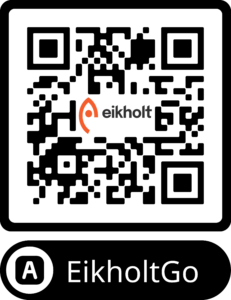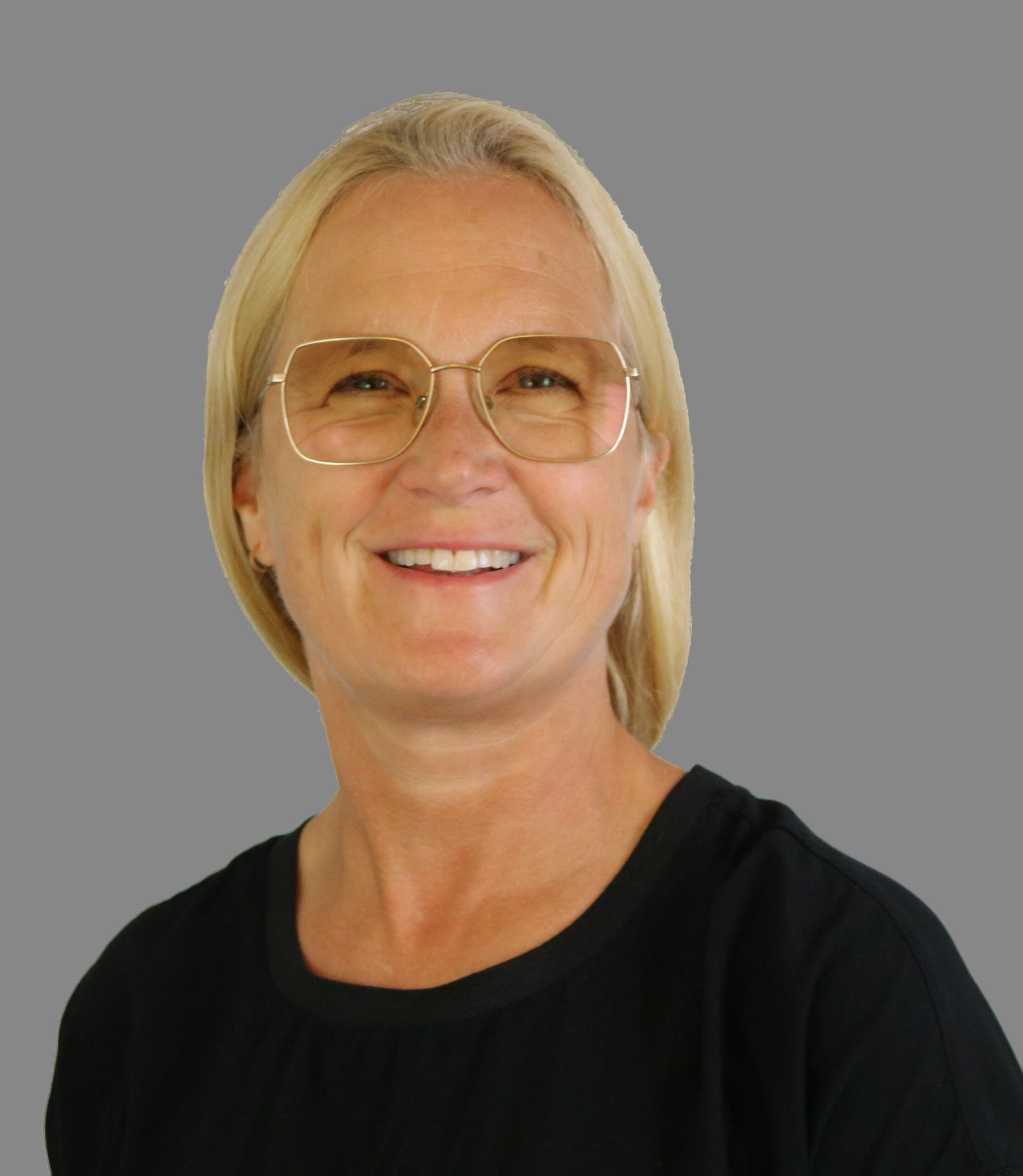Interpreting student Dina - there is a before and after practice on Eikholt
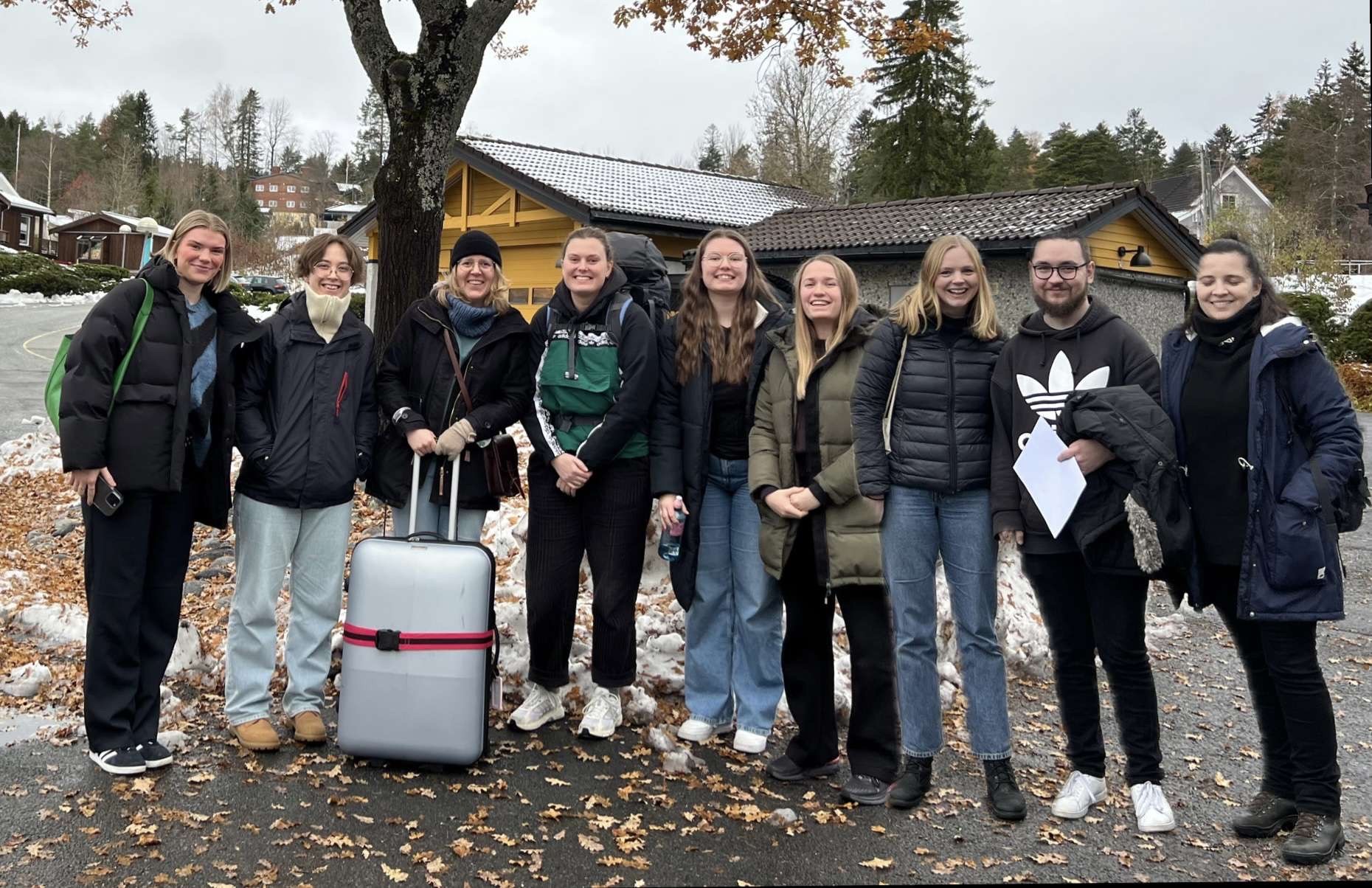
Meet Dina, a 23-year-old student at NTNU in Trondheim, in her final semester of the Bachelor of Norwegian Sign Language, Professional Programme in Interpreting. With a background in drama from upper secondary school and NTNU, she has always had a love for practical subjects. Now she is on her way to completing her education and becoming a professional interpreter. She talks about her choice, about being an interpreting student and what practice has meant for her learning.
Hooked on Norwegian sign language
We wonder why Dina chose this programme?
"There was no particular reason for the choice," says Dina. "I've studied drama in the past, but I don't like to just sit around. I'd like to do something practical. I got an assignment from secondary school where I chose sign language, and I was hooked on Norwegian sign language." She goes on to say that she didn't know anything about sign language beforehand, but that her mum, who has worked as a support contact and attended Eikholt herself, inspired her.
Good and safe study environments
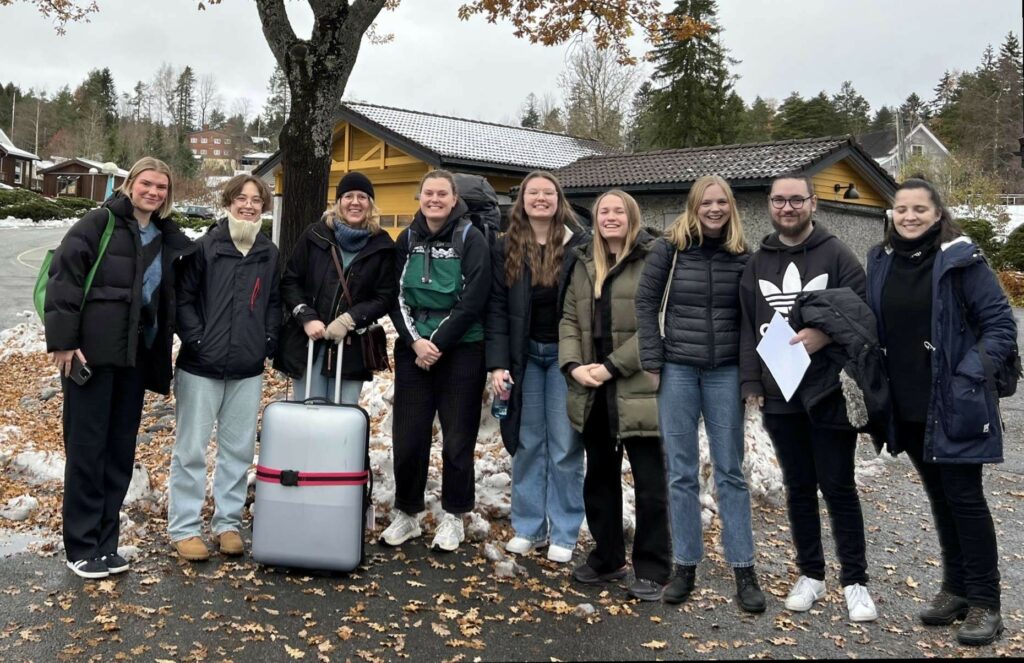
Dina describes the programme as safe and supportive. "We have good lecturers and teachers. I'm a bit dreading standing on my own two feet, but it will be a bit exciting too. There are eight of us now," she says.
At NTNU, students have their own internal practice week in interpreting, accompanying and describing before they come to Eikholt. "We learn in advance how to meet people with dual sensory loss. In week 17, we put theory into practice. We interpret for people with dual sensory loss who talk about their experiences. It's an internal practice in a safe environment where we get to try and fail and learn a lot - this provides a foundation before coming to Eikholt," explains Dina.
Internship at Eikholt - it has become a before and after
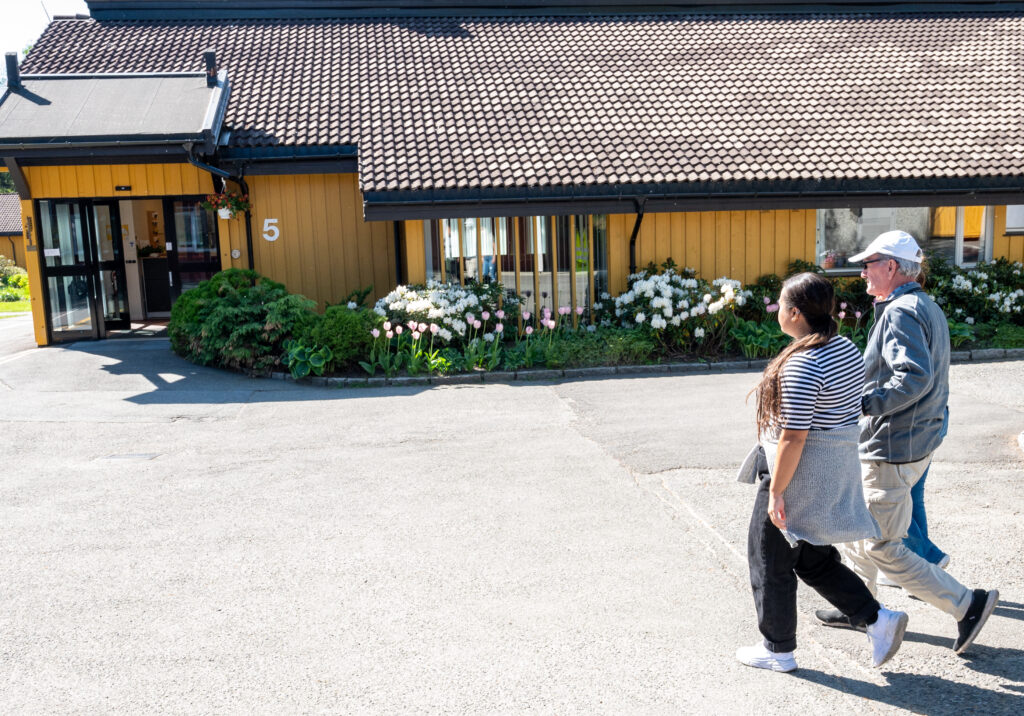
Dina was looking forward to the internship and hadn't decided to go until she was on the plane. She found it difficult to be outside a safe environment, but received a lot of support from other students and her teacher.
The practical part of Eikholt was extensive and required a lot of preparation. "Students from three study cities, eight course participants with combined visual and hearing impairments and professional interpreters. There are a lot of people and a lot going on. We get to try out everything, all ages, different combined sensory impairments, new challenges every lesson. It's good experience," she says.

"I mostly interpreted for older people, which was exciting. We had activities like the music floor and baking, and I gained a lot of experience," she says.
The course participants in Eikholt were keen for the students to get the most out of the internship. "They become more mentors to us. They know what they want and what works and doesn't work. A younger participant who hadn't tried haptic signalling before learned about it from us. It helps to give them tools," says Dina.
Has received eeriences and new knowledge
Dina is left with a lot of experience and knowledge after her Eikholt internship. "I messaged the class yesterday and told them to never stop - I love the Eikholt internship! You get so much out of the internship that you can't get without it. It's almost like a camp school atmosphere with a big age gap and people you know and don't know," she says.
What skills should you have as an interpreter?
To be an ideal interpreter, Dina believes you need to have patience to learn a new language, respect for the language and the people. "You have to have respect for what's going on around you. You're not a helper, you're a tool. You shouldn't think so highly of yourself, but be humble and show compassion," she says.
A good foundation for the future
Dina has dreams for the future and looks back on the internship with gratitude. "The internship at Eikholt is worth its weight in gold - it's a before and after Eikholt. It's so rewarding to have an internship like this. We can read as much as we want about theory and methods, but there's nothing as rewarding as the Eikholt internship on the way to becoming a trained interpreter. The foundation you get means a lot," she concludes.
Read more:
Les and Martine Jevne's experience as an interpreting student in practice at Eikholt: Interpreting student and practice experiences at Eikholt - Eikholt
Here you will find information om Eikholt
Here you can see Eikholt's facilities
Here you can read about Eikholt's services
Here you can read more about Communication methods for people with combined visual and hearing impairment.
If you have any questions about internships as an interpreting student, please contact Cathrine Timm-Sundin.
Interested in more information about Eikholt?
Download the app Info Screen Go in the App Store or Google Play.
Use the code Eikholt80
